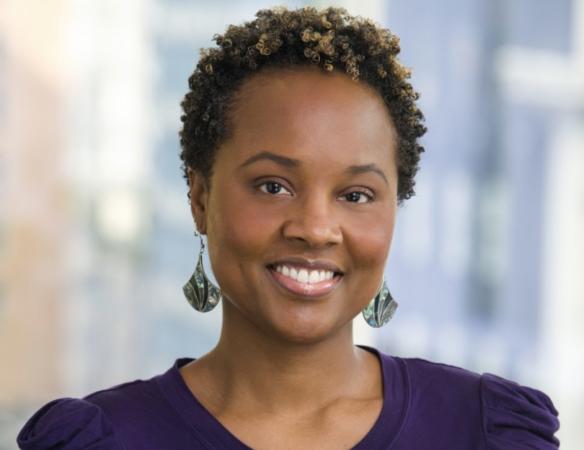The “Red Table Talk” launched on Facebook in May 2018 and soared way beyond many expectations. The show featured Jada Pinkett-Smith, her daughter Willow Smith, and her mother Adrienne Banfield-Norris discussing trauma, abuse, mental illness, and a variety of issues often avoided in the Black community.
For many people, the show became a source of healing for their traumas while it also provided a template that communities of color could follow to address broader issues.
Recently, we sat down with Kibi Anderson, Emmy-award winning producer and former President at Red Table Talk Enterprises to discuss her career and how she thinks the show has changed the culture.
In the Beginning
Anderson hails from Seattle, WA, and, early in life, was exposed to the amalgamation of cultures that forms the city’s rich personality. She also became intensely curious about Asian cultures.
At the tender age of 16, she packed her bags and headed to Singapore to complete her senior year of high school. The experience transformed her vision of the world and gave her a fresh perspective on how societies outside of the United States view people, Black people. She decided that she wanted to help shape the stories being told about her community and communities that looked like hers.
“That’s really what caused me to decide that I wanted to spend my career impacting storytelling because I just understood the power of how media influences perception,” she said.
Education
Anderson returned to the U.S. after high school and earned a degree in East Asian Studies at Harvard University. She then moved out to California where she would spend 11 years building a career crafting digital media and content.
“I’m a film producer who has a passion for telling unique stories. And I had a perspective that I think just really resonated with folks,” she said.
One of her early projects, “Might Warriors of Comedy” (2006) focused on an Asian-American comedy troupe. It aired on PBS and won an Emmy.
Later in her career, she saw moving to New York as an exciting new arena for her to build new communities and collaborate with other creatives and entrepreneurs. In New York, she earned an MBA in Media, Technology, and Finance at NYU and later held senior roles at ABC News Digital and Bloomberg.
“At the end of the day, these are organizations that were trying to differentiate themselves in the news space and the reality is that the best way to do that is with amazing storytelling,” Anderson said.
Journey to the “Red Table Talk”
A coffee meeting with a friend from business school sparked her journey back to California and to the “Red Table Talk.” In fact, at the time of the meeting, the show hadn’t even launched yet. However, she was missing the entertainment side of the industry and seeking out opportunities back West. When the show aired, it became clear that its impact would be enormous.
“The excitement around the show, the engagement from the community, you know, unsolicited, just really began to indicate, wow, there’s something pretty cool here, ” Anderson said. “That’s where the conversations began to shift. And that’s where my role began to evolve as the president of the company.”
At RTTE, Anderson’s primary task was to build out its digital media business. This meant helping the brand explore opportunities beyond the show.
“Nothing like this existed,” she said. “The beauty of the fact that you have three generations of women who are talking in ways that you just don’t see people talk historically, you know, let alone black women, and let alone three different generations of black women.”
Anderson remains in awe of the show’s global reach. While the show’s audience was about 85 percent Black women, these women came from all over the world. Black women from Africa, Europe, and the Middle East were tuning in and engaging.
Was Anything Ever “Too Much”
The conversations at the “Red Table Talk” certainly burned down some deep-rooted cultural norms, but was any topic ever considered “too much?”
In short, the answer was “No.”
“I think that was the point of doing the show with a partner like Facebook, to be frank because I think Facebook really gave the team the freedom to really push the envelope and to have tough conversations,” Anderson said. “How do you have tough conversations in a healthy way that allows everybody to learn to grow and to heal?”
This includes hosting figures like T.I. and Snoop Dogg after controversial incidents.
“If we cannot have these kinds of tough conversations at our own tables, where are we supposed to have them?” she said.
After “Red Table Talk”
Anderson is no longer with Red Table Talk Enterprises but her career as a storyteller is far from over. After two decades of charging full-steam ahead, her immediate future involves tons of self-care and planning a wedding to her new fiancé. She is also focusing on bringing more balance to her life.
“Sometimes we get so caught up in the doing that we don’t take time to allow for the being, just existing. And so I am claiming that at this point, right now, just to kind of give myself a little bit of time to just be,” she said.

